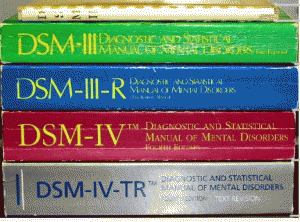
603-880-8188
info@directionbehavioralhealth.com
NEWS & UPDATES

Psychosis: An Open Letter to Hollywood Producers

October 19, 2021
Dear Hollywood Producers:
I am writing to offer my services as a psychiatrist with nearly 20 years of experience working with both adults and kids. I think, hired as a consultant, I would be able to help you improve the quality of your movies and shows. I furthermore believe that your increased revenue from a better product (which I can help produce) will more than pay for my services. My rates are quite reasonable.
Allow me to be frank. Your depiction of mental illness and psychiatric disorders in films is pretty terrible.
To be fair, I’m not a film buff, and haven’t seen all the movies and shows. And there are a few psychiatric disorders that some actors have done extremely well. For example, Jesse Plemons (Todd) and Krysten Ritter (Jane) of Breaking Bad did great jobs in portraying sociopathy and heroin addiction, respectively. Please pass my kudos along to producer Vince Gilligan for his casting. Some actors have convincingly played autism and narcissistic personality disorder as well (though I’m not sure that second one is coincidence).
But you really, really need help with the vast majority of conditions. Can’t we have one – just one! – movie that accurately portrays bipolar disorder? Or depression? Or schizophrenia? It doesn’t have to be a main character, nor the focus of the story. A realistic portrayal would not only make for a more powerful film, but it also would be a step toward dispelling some of the myths about mental illness and misconceptions of the general public. Now that would be a truly worthy cause!
I recently conducted a Google search in an effort to find films that accurately portray psychiatric conditions, and have assembled a short list. Several I have not seen, but I must say that I’m not optimistic. I am trying to keep an open mind, however. I hope in the upcoming weeks to review some of these movies and offer you some “constructive feedback”.
To give you a head start, and because I feel urgency to begin somewhere, let’s talk about the terms psychosis and psychotic. It drives me nuts, if you’ll pardon the expression, to see the terms thrown around so willy-nilly in movies. I also feel it does grave disservice to the public large in perpetuating misunderstanding about this condition.
Permit me to make a few recommendations here.
A Short Primer on Psychosis and Related Recommendations
What is “psychosis,” or the state of being “psychotic”?
1. A textbook definition of psychosis is “impaired reality testing,” which basically means you can’t tell what’s real and what’s not.
2. There are really only two ways the brain can’t tell what’s real from what’s not. The first is by the brain’s senses not working right (i.e., having hallucinations ), and the second is by the brain’s thinking not working right (i.e., having delusions ).
3. In general terms, if you do not have hallucinations or delusions , you are not psychotic.
Recommendation #1: stop using the terms “psychotic” and “psychosis” incorrectly.
What is a hallucination ?
1. It’s seeing or hearing (or theoretically smelling, tasting, or feeling) something that isn’t there.
2. Everybody thinks of visual hallucinations, or “seeing things,” when they think of mental illness. Far, far more common is “hearing things,” or auditory hallucinations.
3. Auditory hallucinations usually take the form of hearing voices. Most often these voices say nasty things about a psychotic person or tell the person to hurt or kill themselves. There are other things that psychotic people hear, but let’s keep it simple for now.
4. Visual hallucinations are uncommon in psychiatric illness. They occur much more often in medical illnesses and conditions. Some examples include being delirious from a high fever, having a neurological disorder like Alzheimer’s disease, or being intoxicated by illicit drugs.
Recommendation #2: let’s see more hearing things, less seeing things in your films.
What is a delusion ?
1. It’s a “fixed, false belief.” That means you believe that something is true (usually something extremely unlikely), and don’t change your opinion no matter how much evidence to the contrary you are presented with.
2. The most common kind of delusion is paranoia , or believing people are after you in some way. It might be the CIA, police, or your neighbors. You might think people are following you, stealing from you, playing tricks on you, or trying to kill you.
3. There are other types of delusions as well. Some are “grandiose,” like believing you are the second coming of Jesus Christ sent to save the world. Some are “somatic,” like believing your insides are rotting. Some are “bizarre,” like believing another person is living in your eyeball. Yes, that’s one I’ve personally seen.
Recommendation #3: use the term “delusional” correctly, and, if in doubt, stick to paranoia.
What causes psychosis?
1. Psychosis always happens for a reason. You don’t just become psychotic without other symptoms. (A rare exception is “delusional disorder,” but don’t worry about that for now).
2. You don’t have to be schizophrenic to be psychotic. Folks with bipolar disorder and even bad depression can hear voices or have delusions as well. Some neurological conditions, like Alzheimer’s Disease, also cause psychosis.
3. It’s very rare for young kids to be psychotic, because schizophrenia, bipolar disorder, and depression don’t fully develop until later in life. Although you may see other symptoms of these disorders earlier, you rarely see true psychotic symptoms until the late teens, at the earliest.
Recommendation #4: quit having people be psychotic for no reason.
What is psychosis NOT?
1. Psychosis is not “acting all crazy” or doing irrational things. In fact, it has nothing to do with behavior. It has everything to do with sensing and thinking. Remember, if you don’t have hallucinations or delusions, you aren’t psychotic.
2. A huge pet peeve of mine is the notion of “psychotic killers” in movies, shows, and books. Very few killers in real life are psychotic. They don’t hear voices or have delusions. Usually, they are angry or sadistic people who don’t care about others. They may be psychopaths, which are basically people with zero empathy. It’s like being a sociopath but more extreme. But psychopath and psychotic are two entirely different kettles of fish.
Recommendation #5: don’t call people psychotic unless they have hallucinations or delusions.
End of lesson.
I’m here to help. Together, I think we can really make some progress in more accurate portrayal of psychiatric conditions on the big screen, and at the same time improve the public’s understanding of psychiatric conditions. Feel free to contact me by email if you’d like to talk more about our potential partnership. In the meantime, I’ll be at home watching some movies.
Sincerely,
Duncan Gill, MD
LINKS
CONTACT US
info@directionbehavioralhealth.com
FAX 603-880-9188
25 Technology Way, Nashua, New Hampshire 03060, United States
Serving families from across New England at our facility in Nashua, New Hampshire:
Nashua | Merrimack | Manchester | Concord | Seacoast
Massachusetts
Greater Boston | Lowell | Tewksbury | Lawrence | Haverhill
Maine
All Rights Reserved | Direction Behavioral Health Associates



